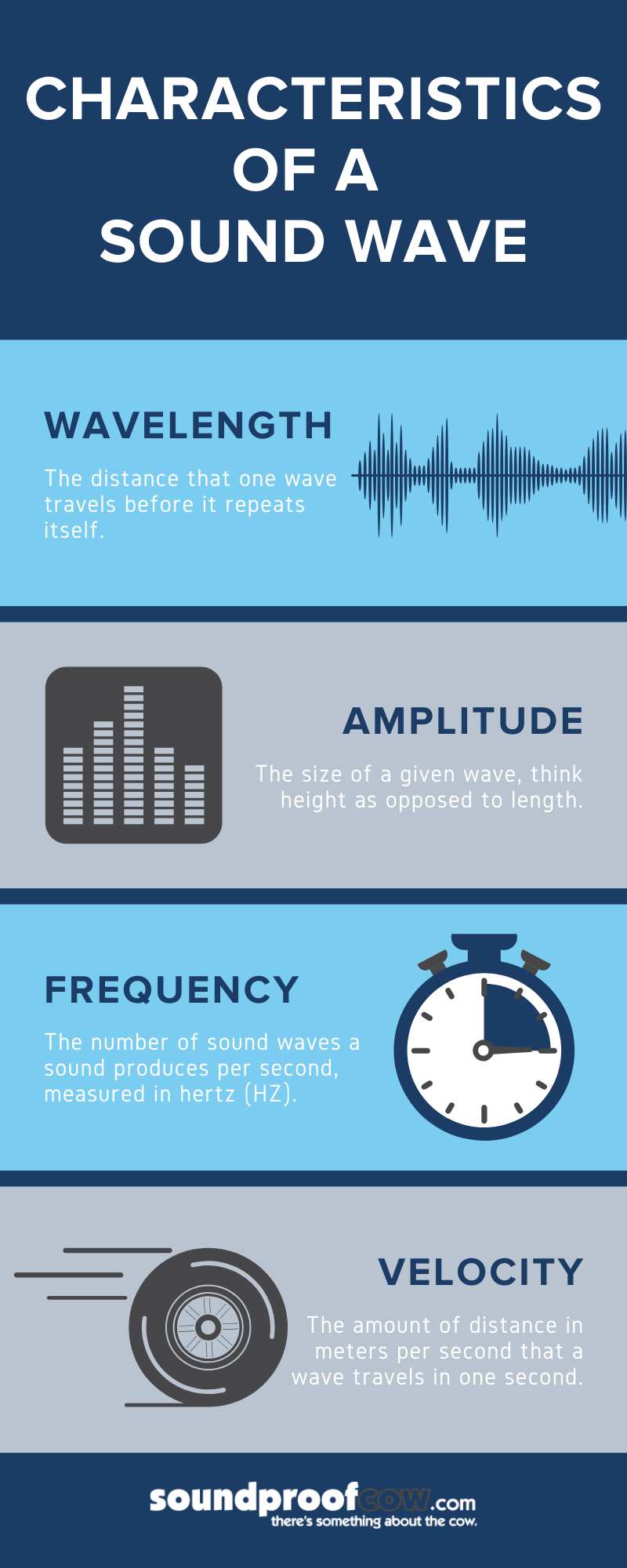
You probably know that the sound you hear is the result of sound waves. But what are sound waves, exactly? What are their characteristics? And how do they work?
What is a Sound Wave?
A sound wave is caused by energy that moves through air, water or other materials as tiny vibrations. For example, when an object like a cell phone vibrates, it creates a disturbance, which propagates as a sound wave.
Properties of a Sound Wave
The five main characteristics of sound waves include wavelength, amplitude, frequency, time period and velocity.
- Sound Wavelength: The most important characteristic of sound waves may be the wavelength. Sound consists of a longitudinal wave that includes compressions and rarefactions as they travel through a given medium. The distance that one wave travels before it repeats itself is the wavelength. It is the combined length of a compression and the adjacent rarefaction, or the distance between the centers of two consecutive rarefactions or compressions.
- Soundwave Amplitude: The amplitude is the size of a given wave. Think of it as sort of like the wave’s height as opposed to its length. The soundwave amplitude is more accurately defined as the maximum displacement of the particles the sound wave disturbs as it passes through a medium.
- Frequency: The frequency of sound refers to the number of sound waves a sound produces per second. A low-frequency sound has fewer waves, while a high-frequency sound has more. Sound frequency is measured in hertz (HZ) and is not dependent upon the medium the sound is passing through.
- Time Period – The time period is almost the opposite of the frequency. It is the time required to produce a single complete wave, or cycle. Each vibration of the vibrating body producing the sound is equal to a wave.
- Velocity – finally, the velocity of the wave, sometimes referred to as the speed, is the amount of distance in meters per second that a wave travels in one second.
How Do Sound Wave Characteristics Affect What You Hear?
So now that you know these different characteristics of sound waves, how does it affect what you actually hear? Well, there is a direct relationship between frequency and pitch and between amplitude and loudness.
Specifically, the more sound waves a sound produces, the higher the pitch. Meaning if a sound has a high frequency, it will produce a high-pitched, shrill sound, while sounds with a lower frequency produce lower, deeper sounds, like bass sounds. A sound of one frequency is called a tone. You may have heard one if you have ever heard someone use a tuning fork. This is also sometimes called a “pure” sound.
The relationship between amplitude and loudness is quite simple. The higher the amplitude, the louder the sound. This can be understood logically. A higher amplitude means more particles in a given medium are being displaced, which we would expect to produce more sound.

Use the Characteristics of Sound to Soundproof Your Space
The more you understand sound, the easier it should be to generate the type of sound you want. Understanding sound is extremely important when it comes to soundproofing and noise control. If you want to block sound from entering a certain room or make sure you only have clean, crisp sound, it’s important to have a strong understanding of how sound works.
You don’t have to be an expert in sound to get the noise control you want, however. Soundproof Cow can help. Contact us and our sound experts will provide an acoustic analysis for free and offer advice on the best way to get the acoustic effect you are hoping for.
Learn More About Understanding Sound
What is Reverberation of Sound
Impact Noise vs Airborne Noise






